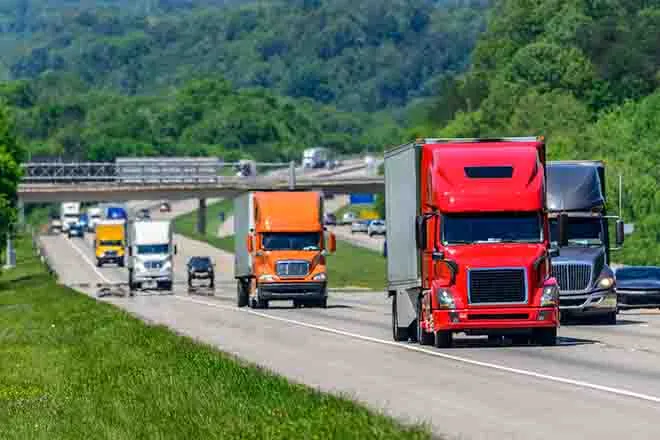
Daily Audio Newscast - September 10, 2025
© AlexLMX - iStock-823000260
Six minutes of news from around the nation.
Supreme Court takes up legal battle over Trump tariffs, setting stage for major showdown; Nebraska researchers focus on early childhood educator shortage; NH high school program teaches more than academics; Court case pushes MN to review rules tied to farm runoff.
TRANSCRIPT
The Public News Service Newscast, September the 10th, 2025.
I'm Mike Clifford.
The Supreme Court Tuesday said it will decide whether President Trump can impose his most sweeping tariffs, setting up a major test of one of the pillars of the president's economic agenda.
That is the take from CBS News.
They report the high court agreed to review lower court decisions and found Trump did not have the authority to issue many of his global tariffs under an emergency powers law.
The Trump administration has argued upholding the ruling from the U.S. Court of Appeals for the Federal Circuit would put the U.S. at a disadvantage and expose the nation to retaliatory trade policies.
CBS notes the case is the first in which the Supreme Court will directly decide the legality of one of Trump's second term policies.
And researchers and students at the University of Nebraska are addressing a critical shortage of early childhood educators, especially in rural parts of the state.
The program, called CAHNU, is designed to increase recruitment and retention of rural early child care workers and teachers.
Holly Hatton, associate professor in child, youth and family studies at the University of Nebraska, says the program asks communities what they need most and puts that information to use in educating future providers, employers and community leaders.
In terms of their professional learning, workforce development, and really using this community-led approach to support rural communities in unique ways so that we can have a sustainable approach to support having access for families and communities to have provision of quality childcare.
Researchers are gathering information from local communities on a regular basis to help build the program, including at a conference in Kearney this weekend.
The Canoe Program is funded by a $2 million grant from the U.S. Department of Education.
I'm Mark Moran.
And a special program with New Hampshire's Laconia School District is helping students who leave high school without a degree find success.
The transition program goes beyond academics to teach students the life skills they'll need to live independently, hold a job, or navigate local services.
Interim Director of Special Education, Jen Sautak, says the feedback from students' families tells her it's working.
Their response to that has just been like, holy moly, this is amazing. and it allows them to think bigger for their own kids.
New Hampshire expanded the definition of a child with a disability in 2022 to include all people younger than 22 identified as needing special education services.
Sautak says students benefit when educators are given the flexibility to create programs that cater to their students' strengths.
This story was produced with original reporting from Adam Dropchow for Laconia Daily Suns.
An important component of the transition program is the many field trips to locations students will visit as adults, including local banks, fire and police stations, medical clinics, or community service centers.
I'm Catherine Carley.
This is Public News Service.
A Minnesota court settlement is prompting the state to take another look at what's considered a hidden threat to water supplies and issue excess nitrate runoff from farm fields.
This month's agreement stems from a lawsuit filed earlier this year by a handful of environmental and conservation groups.
They called into question the effectiveness of existing rules covering farm practices like manure and commercial fertilizer application.
The Minnesota Center for Environmental Advocacy's Carly Griffiths says when those common farming practices aren't followed with enough safeguards, the drinking water in surrounding communities is vulnerable to pollution.
There are really often higher burdens of health impacts on rural private well users that aren't on a municipal public water supply system.
The agreement gives the state agriculture department a year to analyze its groundwater protection rule along with public input.
There's a similar order for the Minnesota Pollution Control Agency on a rule dealing with feedlot operations with its review process already underway.
I'm Mike Moen.
Next to Indiana where lawmakers say they're preparing for more oversight of artificial intelligence.
The state's artificial intelligence task force voted Tuesday to recommend creating a permanent commission to study the fast-growing technology.
Republican State Senator Liz Brown, who co-chairs the task force, says the recommendation is designed to keep lawmakers engaged year-round.
The goal would be that we establish this permanent commission to meet on a more regular basis so we don't cram all these really big topics in a short period of time and then wait a whole 'nother nine months to meet again.
Brown stresses AI will impact every part of daily life.
Supporters say a standing commission will help lawmakers balance opportunity with consumer protection.
They warn that if Indiana waits too long, technology could advance faster than regulations.
I'm Joe Ulari, Public News Service.
Finally, while climate change is already known for its link to the spread of infectious disease and heightened symptoms for people with respiratory and cardiovascular illness, it's also connected to stress, trauma, and poor mental health.
A 2018 Indiana Climate Change Assessment Report says the state has warmed slightly more than one degree Fahrenheit per year since 1895, with a future projected rise of five to six degrees every year by 2050.
Climate Emergency Fund Director and clinical psychologist Margaret Klein-Salomon says our society is living in an unprecedented situation with climate change, which can produce an immense range of emotions.
We feel fear, anger, grief, guilt.
That's actually not the problem.
The problem is we don't know what to do with that.
People are repressing them and denying them and saying it must be fine, I'm overreacting.
I'm Terry Dee reporting.
This is Mike Clifford for Public News Service.
Member and listener supported.
Find our test indicators at publicnewsservice.org.

















